Salute to Silent Doers
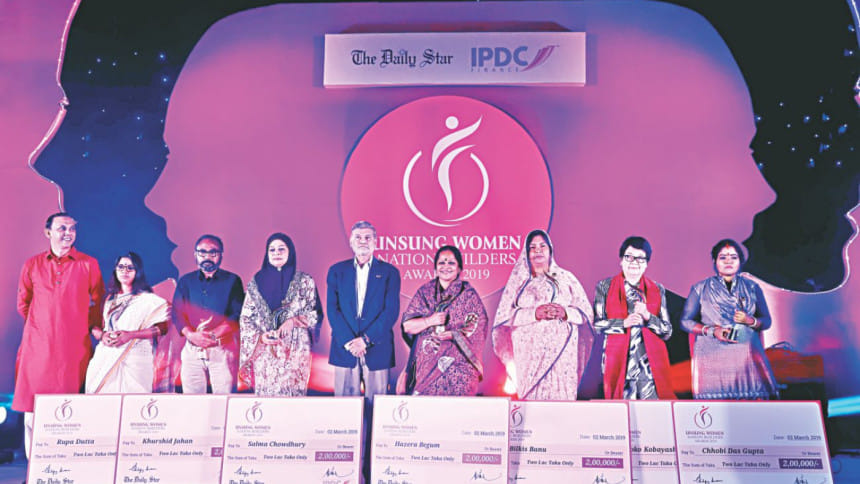
Hazera Begum left home to escape the torture of her stepmother. Eight-years old and lost in a world she did not know, Hazera was raised by the streets where she made her living by begging.
Eventually, like many other street children, she was forced into prostitution for survival.
Always looking to overcome the trap she was in, Hazera finally came across a development organisation in 2008. It helped her bid farewell to her former life and work for the wellbeing of other sex workers.
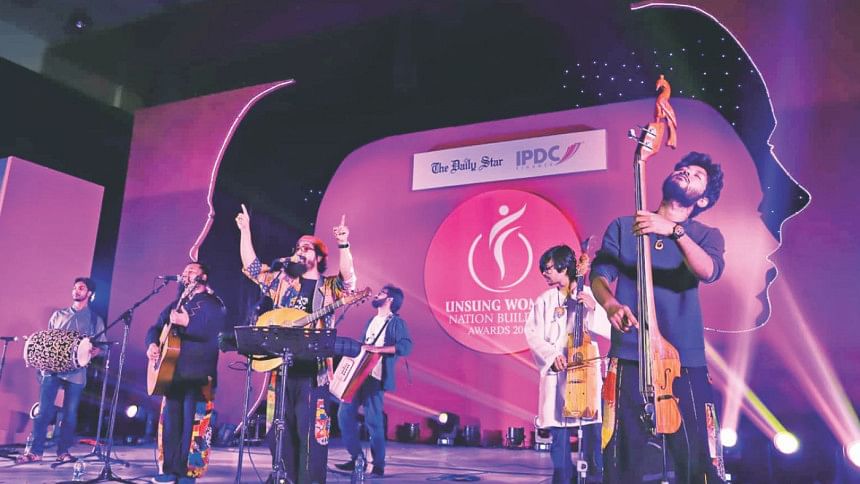
In 2010, she established a child development centre in Dhaka -- "Shishuder Jonno Aamra" -- with her savings and support from individual donors. Hazera began gathering street children and providing them with food, treatment and most importantly -- love -- which they need the most. Most of about 50 children of the centre go to nearby schools to attain formal education.
"These kids are my family. I am embracing my motherhood with these children," says Hazera, 49.
"I want these children to do something for the country one day and make everyone proud... I would be the happiest mother ever that day," Hazera says.
In recognition of such extraordinary contributions, Hazera and six other women were honoured with the "Unsung Women Nation Builders Awards 2019" yesterday. They worked to build an enlightened society, which is currently plagued with struggles and open discrimination against women.
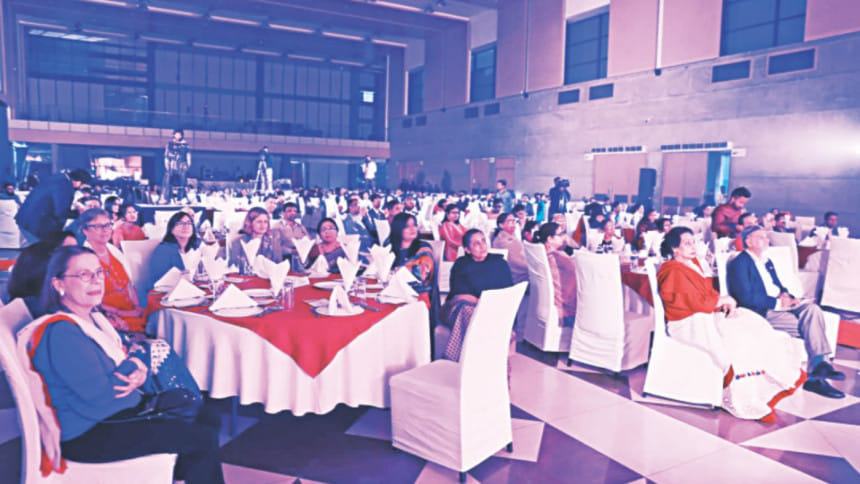
The other six women are freedom fighter Khurshid Jahan; Japanese philanthropist Hiroko Kobayashi; worker-turned RMG entrepreneur Chhobi Das Gupta; orphanage founder Bilkis Banu; Rupa Dutta, school founder for indigenous children and Salma Choudhury, founder of ASHIC, a shelter for children with cancer.
The Daily Star in cooperation with IPDC Finance Limited presented the awards to the outstanding personalities at a gala event at the International Convention City Bashundhara (ICCB) in the capital. They were selected out of more than 100 nominations.
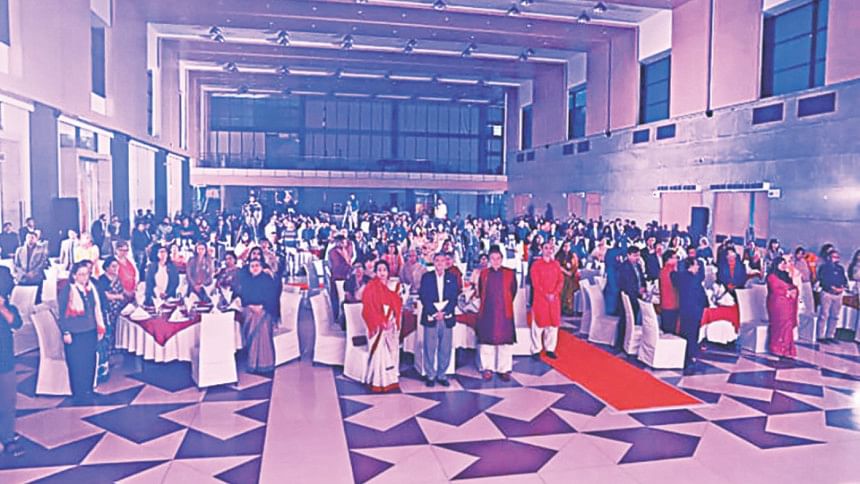
The awards jury consisted of renowned personalities -- Rubana Huq, managing director, Mohammadi Group; Rasheda K Choudhury, executive director, Campaign for Popular Education, and Anisul Hoque, author, screenwriter and journalist.
Planning Minister Muhammad Abdul Mannan, the chief guest, handed over a cheque worth Tk 2 lakh to each of the awardees in the colourful programme, organised for the third time.
Rights activist Sultana Kamal, Bangladesh Mahila Parishad President Ayesha Khanam, CAMPE Executive Director Rasheda K Choudhury, Manusher Jonno Foundation Executive Director Shaheen Anam, noted singer Luva Nahid Choudhury, Prof Rebecca Haque of Dhaka University and Prof Niaz Zaman, supernumerary professor at the University of Dhaka, handed over crests to the awardees.

Asaduzzaman, son of Khurshid Jahan, received the award as her mother passed away on February 19 due to cancer.
Afterwards, Minister Abdul Mannan in his address, thanked The Daily Star and IPDC for the award programme and said it would help others learn of the exemplary work done by the unsung heroes.
He said the government, under the leadership of Prime Minister Sheikh Hasina, had mainstreamed women and their contribution, breaking various forms of barriers.
“A renaissance has been created in Bangladesh. In this march towards progress, we will take all onboard and make a prosperous country,” Mannan said.
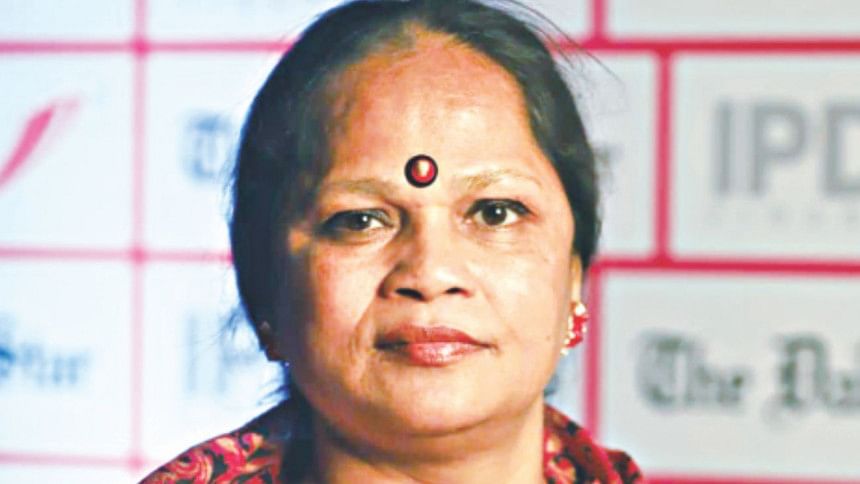
He said there were many others who were making extraordinary contributions to the society and they also needed to be recognised.
The Daily Star Editor and Publisher Mahfuz Anam said the programme's awardees had demonstrated the real spirit of humanity and love through their actions, instead of just using buzz words and not doing much else.
“We want recognition of our work so easily. But when we see the way these women have come forward to help others, we realise how selfless they are. They worked not for recognition… We have a lot to learn from them,” he said.

Many think that they cannot do good work if they are not educated or don't have enough money, but these women demonstrated that such work requires love for people and a sense of humanity and not wealth, Anam said.
“We hope you will be inspired by the unsung women nation builders and work for betterment of people.
“Collectively, we will definitely build a Sonar Bangla.”
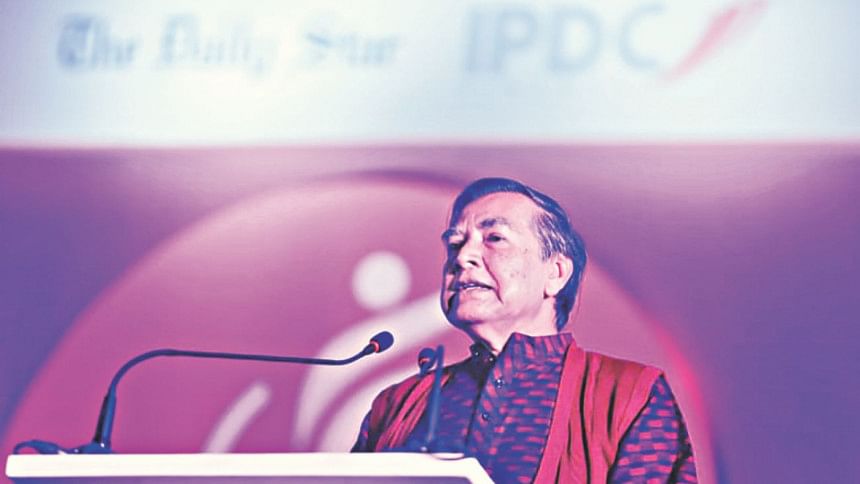
IPDC Finance Limited Managing Director and CEO Mominul Islam said they were proud to be part of the event honouring women dedicated to the wellbeing of people without any self-interest.
“The way these women have demonstrated their ability to help people is a model for all of us,” he said, adding: “Sacrifice of these seven women surpasses fairytales. Actually, we have been honoured by honouring you,” he told the awardees.
“You are the lights of this society. We wish you will keep up the lights.”
Mominul Islam said IPDC had various women-friendly products and that it also provided incentives on loan interests if any property was purchased by a woman. IPDC will continue to work for socio-economic development of the country and women empowerment.
The awardees thanked and expressed gratitude to The Daily Star and IPDC for the award and said it would inspire them, as well as others, to do good work for society.
"I hope many others will come to do good work," said Salma Chowdhury of ASHIC.
"Thank you all; thank you The Daily Star. I am feeling very good to have this award. It is an inspiration for me," said Hazera Begum, an award winner.
The programme, moderated by TV personality Sharmin Lucky, also featured a musical show by Joler Gaan and screening of short documentaries on each of those honoured.
Unsung women: Nation Builders 2019
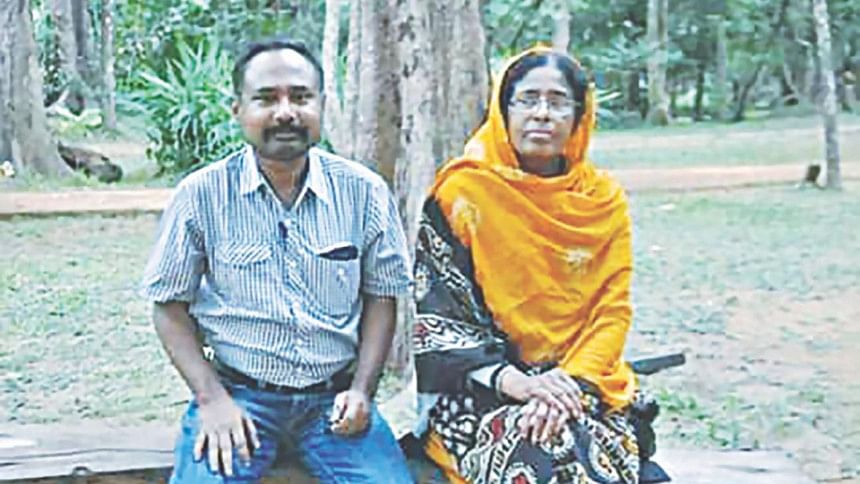
Khurshid Jahan - Tigress of Sundarbans
Khurshid Jahan lived an ordinary life in Khulna before she died on February 19. But she is an image of strength and independence to her grandchildren, who grew up listening to her tales of how she fought for the freedom of Bangladesh.
Khurshid was a college student and mother of a five-month-old baby when she joined the Liberation War of 1971.
Read More: The tigress of Sundarbans
“I was recruited to scrutinise new comers and arrange training for them, especially women,” she said in an interview with The Daily Star last year.
The then 21-year-old mother wanted to be in the frontline, but her commander persuaded her to oversee the nursing of injured freedom fighters and training of new fighters.
She would hop on boats to any of the 14 camps in the forest to treat injured fighters, give logistical support and even spy on them to see if any of them was traitor.
Khurshid lived a very active life as a banker and then with her family after retirement. She died of oral cancer at the age of 69. She would take her grandchildren – Ruffin Saswan Zaman, 13, and Wriddho Jyotirmoy Zaman, 7, to the village, to swim and spend time with them. She liked to live with all her family members together, which is why her family still lives in a joint family, says her son Asaduzzaman Taj.
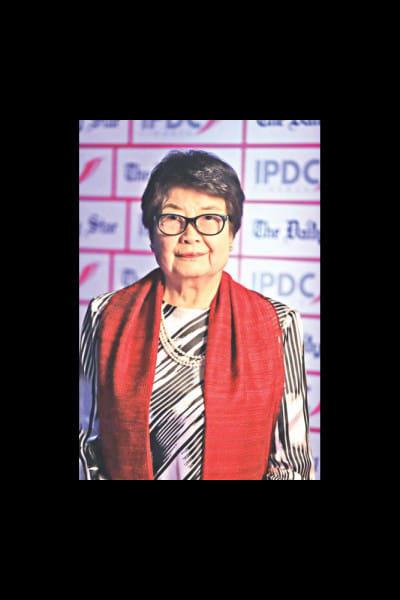
Hiroko Kobayashi - From Japan with love
Ninety-year-old Japanese national Hiroko Kobayashi is a teacher of Ikebana, the Japanese art of flower arrangement, and a photographer. But these are not the skills she is well known for in Bangladesh. Rather, it is for the generosity she demonstrated towards advancing women's education.
From her own initiatives, she has financially supported over 100 Bangladeshi girls to complete their school and college degrees in Jhenidah and Panchagarh.
Read More: From Japan with love
It all began in 2003, when Hiroko first came to Bangladesh to work for Japanese NGO Hunger Free World and heard that a female student in Kaliganj of Jhenidah had died by suicide allegedly for not having enough money to appear in her Higher School Certificate exam.
Hiroko, who herself faced financial challenges growing up, decided to stand beside the poor female students. The only condition she places on the scholarship recipients is that they promise not to marry until they are well-established. She also hopes that they will, in turn, help other poor students in future.
“Hiroko visits Bangladesh every March,” says Hunger Free World Director Anjuman Aktar.
“She says she will run the scholarship programme for as long as she lives.”
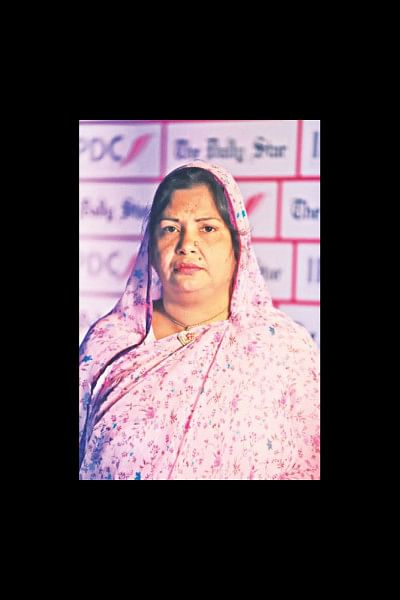
Bilkis Banu Caring for the uncared for
Bilkis Banu could have spent a life of luxury with what she and her in-laws had. Instead, she chose something bigger – to serve children who had no one to look after them.
Inspired by the services of Mother Teresa towards the poor and abandoned, she established an orphanage -- Golap Kha Shishu Sadan in Nageshwari upazila of Kurigram -- on a piece of land owned by her husband's family. It is now home to 75 children.
Read More: Driven by love for orphans
Bilkis has always been passionate about helping out children in need. She used to take care of five orphans at her home as well as providing free tuition to poor children in her neighbourhood. She was especially moved in the winter of 1999 when a mentally challenged woman came to her with a baby girl, failing to take care of the child.
Bilkis took her in and named her Pritilata.
That night, she dreamt about Mother Teresa. It was then that she and her husband Rabiul Islam decided to build an orphanage.
Bilkis, 45, provides the orphans with formal education, while they also take part in physical exercise and cultural events at the establishment.
The orphanage is funded by the earnings of the family, farmland, a hostel, and some private donors. Bilkis has future plans to construct a new orphanage complex on 2.25 acres of her family land.
"I will do everything needed to fulfil the wishes of the children in whatever field of study they choose ... My aim is to raise these children as good human beings," says Bilkis, who herself could not study beyond the higher secondary school level.
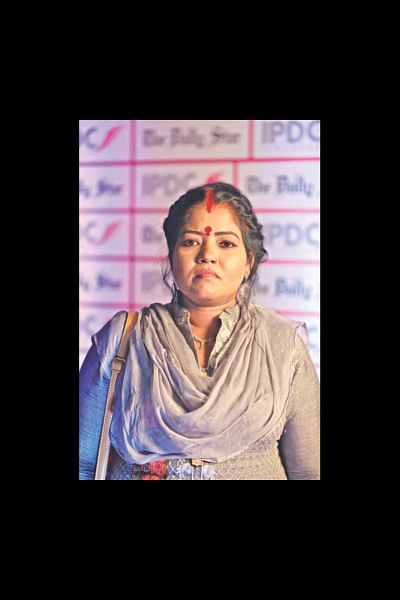
Chhobi Das Gupta - Worker to entrepreneur
Poverty had forced Chhobi Das Gupta to drop out of school before completing the secondary level but her indomitable spirit and hard work made her an entrepreneur from a garment worker.
After the death of her father about 20 years ago, Chhobi started working at a garment factory when she was only 12. Though she had to support her family of seven members, she did dream of pursuing education further and become an entrepreneur one day.
Read More: From worker to apparel entrepreneur
She got herself admitted to the Bangladesh Open University but once again had to pause due to financial distress. This time, however, she had her target fixed in mind and thus kept on saving money accordingly.
After 18 long years, Chhobi established her factory “Sense Fashion” in Chattogram early in 2016. Initially she had six workers, 10 sewing machines, and a capital of Tk 7 lakh -- Tk 5 lakh in savings and the rest from loans. With skills and hard work, Chhobi expanded the business and today has 60 sewing machines and more than 100 employees working for her company.
“There was a time when I had to wait for salary every month to feed my family. Today, I disburse Tk 6 lakh as monthly salaries to my workers,” said the 32-year-old lady hailing from Pashchim Sholkata of Chattogram's Anwara upazila.
Chhobi is grateful to her husband Amalendu Das Gupta and his friend Dipankar Dastidar who stood by her during the rainy days. “Without their support, I would not have reached this stage,” she said.
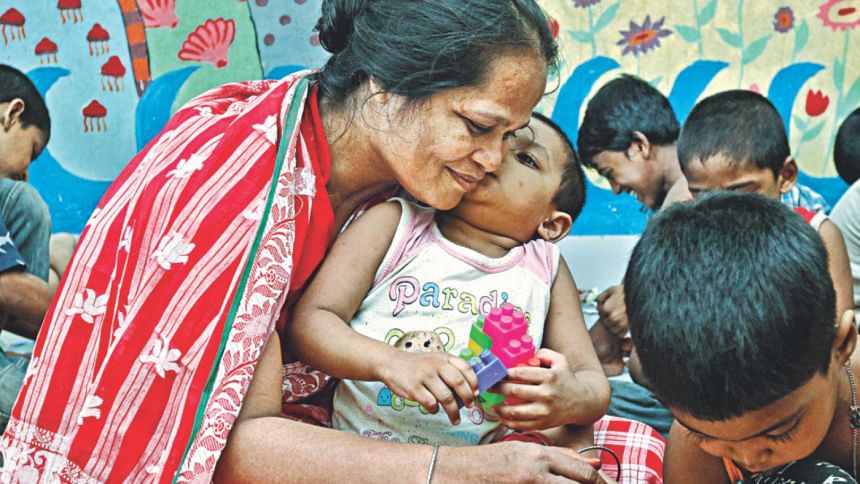
Hazera Begum - A mother of 40
Hazera Begum's childhood was marred by three things – misery, neglect, and struggle. But she turned all those into driving forces and became the “amma” of 40 underprivileged children.
Most of these children biologically belong to sex workers but Hazera, who herself was a sex worker until the age of 23, is nurturing them like a mother at a childcare centre in the capital.
Hazera left home at the age of eight to escape from the torture unleashed by her step-mother. Initially, she lived on the streets but later got forced into prostitution. But the motherly soul deep inside her made her say good bye to the profession and start afresh.
Read More: Of a mother of 40 children
Hazera runs “Shishuder Jonno Amra”, a childcare centre at Dhaka's Adabor neighbourhood. The 40 children living there attend nearby schools, eat, and play -- all in a safe, homely environment.
Hazera, 48, had opened the centre with her savings. She had worked for a development organisation for some time after giving up sex work. Individual donors help her run the centre.
Hazera said she came up with the idea of establishing such a centre out of concern for sex workers' children who have “no identity, rights or future”. She feels no less than a mother when she takes care of the children most of whom have been abandoned by their families.
"These kids are my family. I am embracing motherhood with these children," she said.
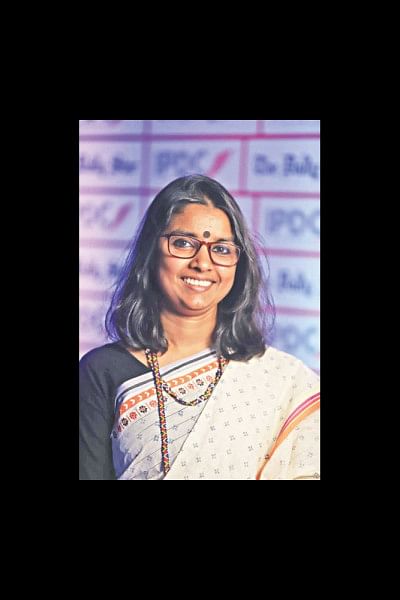
Rupa Datta - Championing a school rebuild
Rupa Dutta, 35, got an opportunity to visit the remote parts of Bandarban while working for an international organisation in Chattogram in 2013. There, she discovered a school at Champajhiri Para in Gajaliya union of Lama.
It made her sad to see that the school had only one teacher, whose monthly salary was Tk 1,500. While the salary was paid by a missionary, the teacher had to work on a farm to make ends meet and could not concentrate on teaching the 11 students at the school.
Rupa decided then and there to contribute to the teacher's salary and expand the school. “I approached my friends Miti, Rajib, Rana and Sanjay to join me in me in serving the indigenous communities.”
They agreed and the venture for the Mro children started.
They named the school Pawmang (flower garden) and eventually helped its renovation. They also set up a hostel in 2015 with contributions from friends. The village chief Long Tui donated five acres as well.
Different organisations including Colouring Little's Mind, Vertical Dreamers and Crack Platoon contributed to the school that now has 103 students from pre-primary to Class-V. Rupa said there is a committee comprised of locals, guardians and teachers to manage the school. “We are advisers and want the committee to take the leadership role.”
A total of 21 students who graduated from the school are now in high schools.
Sanjay Kumar Nath said they rented a hostel in Bandarban town for the high-school students.
“We have started gardening, tree plantation and fish farming to make the school self-reliant,” he said.
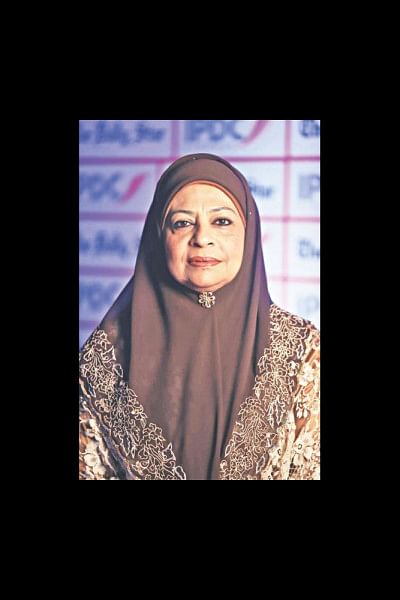
Salma Choudhury - Understanding children with cancer
Salma Choudhury has seen the worst of cancer as she lost her son Ashiq Husain Choudhury to the disease in May 1993 in London. The boy was three years, three months and three days old.
But instead of drowning into sadness, she felt for other mothers going through similar situation, hence founded “A Shelter for Helpless Ill Children” (ASHIC), Bangladesh's first NGO dedicated to children with cancer.
Read More: For children with cancer
Founded in 1994, the charity aims to support children fighting with cancer and their parents with love, compassion, and empathy. Salma and her husband Afzal Husain Choudhury donated their familial property to set up a shelter at Dhaka's Bangla Motor and a palliative care unit in Dhanmondi.
The foundation also runs four play centres at paediatric units at the Dhaka Medical College Hospital, Bangabandhu Sheikh Mujib Medical University Hospital, Sylhet MAG Osmani Medical College Hospital, and Chittagong Medical College Hospital.
The shelter accommodates children along with their parents for free when they come from outside Dhaka for treatment. The palliative care unit gives comfort to the terminally ill patients.
Salma says her heart leaps with joy when children, with support from ASHIC, continue the lengthy treatment process and finally recover.
“I have suffered a lot and I know other mothers who are in the same situation. I am happy to see children surviving cancer,” she told this paper.

 For all latest news, follow The Daily Star's Google News channel.
For all latest news, follow The Daily Star's Google News channel. 

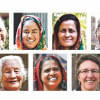


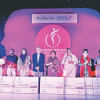



Comments